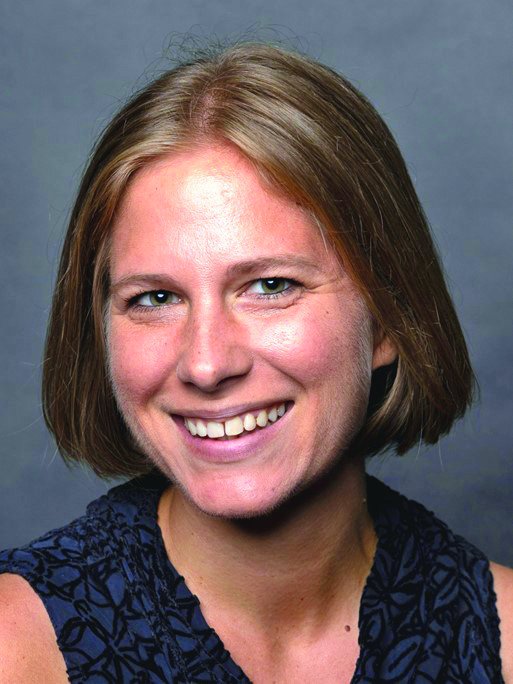Glenn Hansen, executive strategic advisor at BPA Worldwide, talks to exhibitor marketing expert Robyn Davis about the power of metrics
 Recently, I had a chance to catch up with Robyn Davis (pictured) to discuss exhibitors’ perceived value of data standards for digital events. Davis was part of an international working group which I facilitated named Reporting Standards for Digital Events conversation in which she explain more about harnessing the power of data.
Recently, I had a chance to catch up with Robyn Davis (pictured) to discuss exhibitors’ perceived value of data standards for digital events. Davis was part of an international working group which I facilitated named Reporting Standards for Digital Events conversation in which she explain more about harnessing the power of data.
Glenn Hansen: What were some of the biggest challenges that the RSDE working group faced?
Robyn Davis: One of my favourite things about this working group is that every relevant perspective was not only represented, but also heard and valued during this process. With such a diverse group, a big challenge we noticed quickly was that the digital event data available (before RSDE) wasn’t comparable.
In other words: all the events we discussed provided some data, but it didn’t necessarily mean the same thing to each of us. Exhibitors and organizers couldn’t feel confident in making decisions based on the data they were receiving, and, in some cases, they couldn’t even be sure they understood what it meant, since everyone’s ‘standards’ were different.
GH: Talk about some of the challenges with attendee metrics that you were seeing before RSDE.
RD: Attendees are an important part of any event, but again, before RSDE, I don’t think many digital event professionals knew where to start with those metrics.
It felt like, in many cases, getting the right data was an afterthought rather than something that could shape their strategic efforts. This is a huge red flag for me because, if you aren’t clear on what data you need or how you’ll use it (before any event), you’re likely to overlook some of the key components you should be tracking. Then, without the right data (after the event), you’ll be stuck relying on your memories and using ‘trial and error’ to improve next time, which is generally not very efficient.
GH: Any other concerns with the data?
RD: Personally, I’m really into privacy, so not knowing what each vendor was doing with the data they were collecting and processing on our behalf was always top of mind for me, both as a participant and as an event professional.
I think a lot of folks didn’t realise that the data they were receiving from their digital events and then sharing wasn’t necessarily accurate. They needed to double-check to ensure that their systems and platforms were functioning properly before doing any official reporting and, a lot of times, they just missed that step.
GH: As part of the RSDE working group with the exhibitors’ perspective, you helped us understand best what an exhibitor or sponsor might want to see in terms of the data sets.
RD: Yes – I’m so happy to have been able to help with that. One of my biggest frustrations (pre-RSDE) was that exhibitors were expecting that digital events would come with more useful data [vs. face-to-face events], but they didn’t end up getting it. Worse, they often struggled to understand the data they were getting, as I mentioned before. Fortunately, RSDE makes digital event data clearer and more actionable.
GH: Part of RSDE is the glossary of terms. It’s something like 160 terms that we came up with trying to match face-to-face with digital events. Robyn, what was one of your favourite terms?
RD: Oh, goodness! There are so many…
As a speaker and CMP Preferred Provider, ‘zombie’ really stood out. It means a participant who logs into the event and remains logged in after the content availability has ended. I like that one because we need to report session participation accurately, not just for continuing education credits, but so we can ensure we’re successful in creating engaging sessions and activities (or, if we aren’t, at least we can identify where we have room to do better in the future).
Also, from an exhibitor’s perspective, the complete sequence of interactions is super helpful. The more exhibitors can see what’s really happening (who’s visiting them, who’s downloading specific assets, who’s scheduling meetings, who’s attending meetings, etc.), the better they can support their event-specific target audience in the moment and, ultimately, improve their processes each time.
GH: How can industry professionals use RSDE as soon as they’ve finished reading this interview?
RD: The first step I’d recommend is that you review the RSDE glossary and start swapping your current terms and definitions for the official ones. This way, we can all speak the “same language” and enjoy more productive conversations around digital events.
Next, get clear on your expectations for the data.
Exhibitors – ask your platform and/or organiser what data points will be available during and after the event. RSDE includes 17 data tables and formats containing ‘required,’ ‘recommended,’ and ‘optional’ data points; you need to know which ones your platform provider and organiser are planning to share in advance so you can fill the gaps for your own reporting, as needed.
Also, find out who owns your data and how it will be managed. To help organizers with this, we’ve created a template for these types of questions that you can use in your RFPs and contract negotiations. You can also ask any platforms you’re thinking about utilising to see their seal that proves they’re certified and compliant with RSDE standards.
Finally, remember that transparency builds trust… and trust is so important, especially now. So, even if your event isn’t perfect yet, you shouldn’t be afraid to communicate honestly about where you are and where you’re headed. After all, if you treat your exhibitors like the partners they are, they’ll be more understanding of any hiccups along the way and you can grow together instead of frustrating (or, ultimately, losing) them, if/when their experience doesn’t match up with what you promised.
GH: What is your overall goal for RSDE?
RD: For me, the purpose of RSDE is to help everyone feel more empowered to thrive in digital events and beyond. So, I hope as many platform providers, organizers, and exhibitors as possible will see the benefits and choose to take advantage of this very special resource that we worked so diligently to create.





